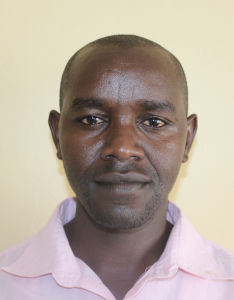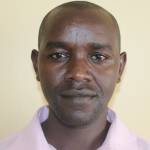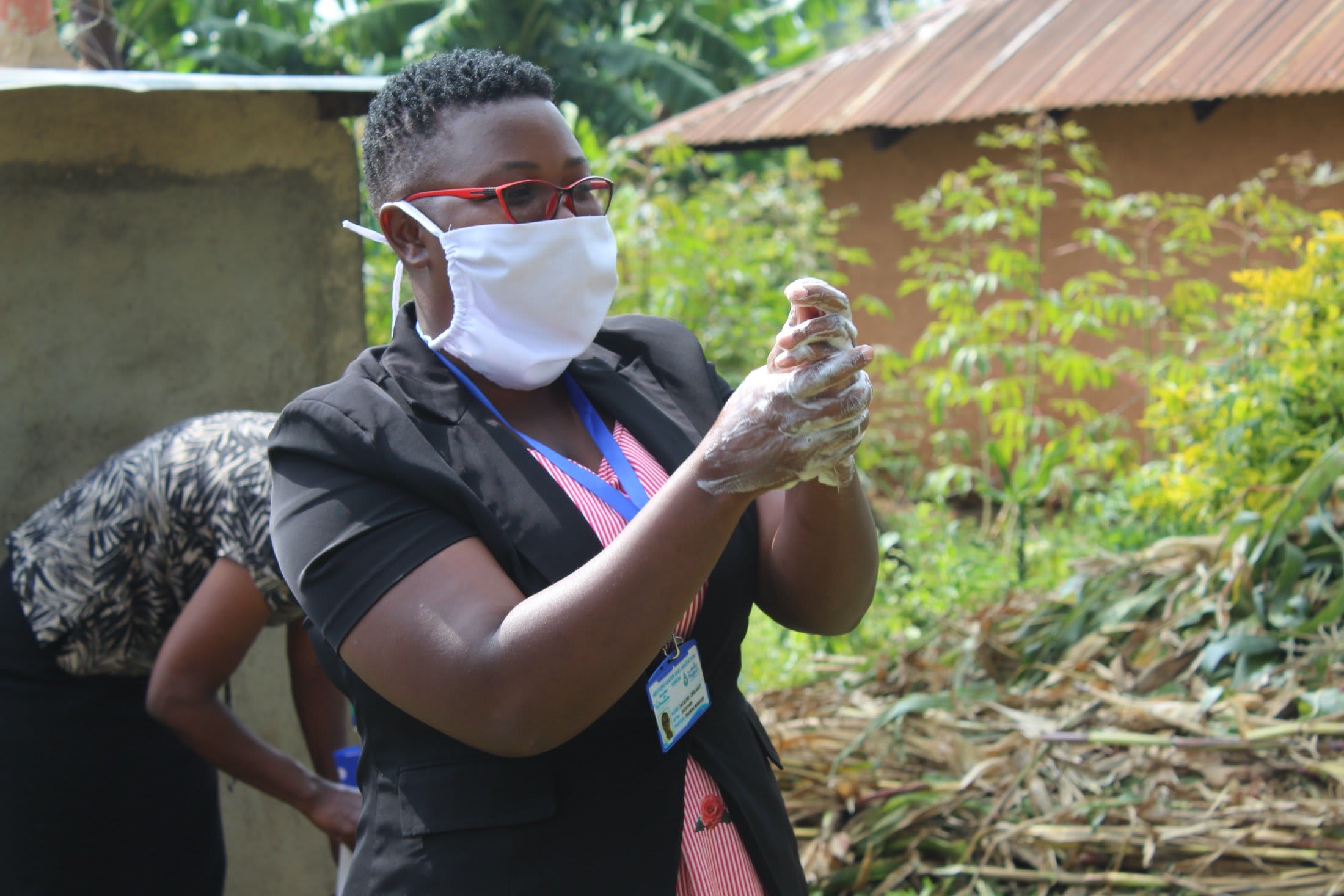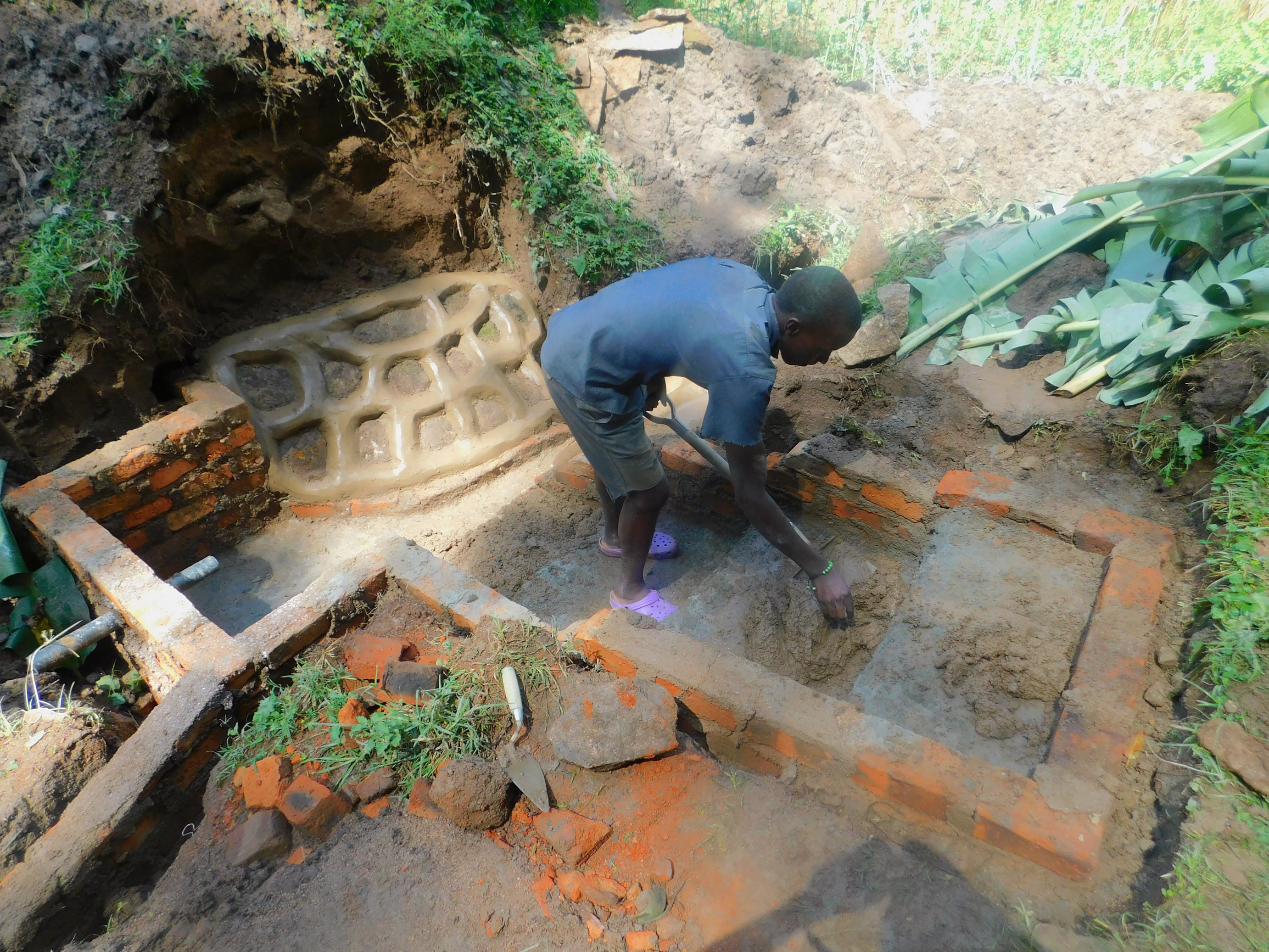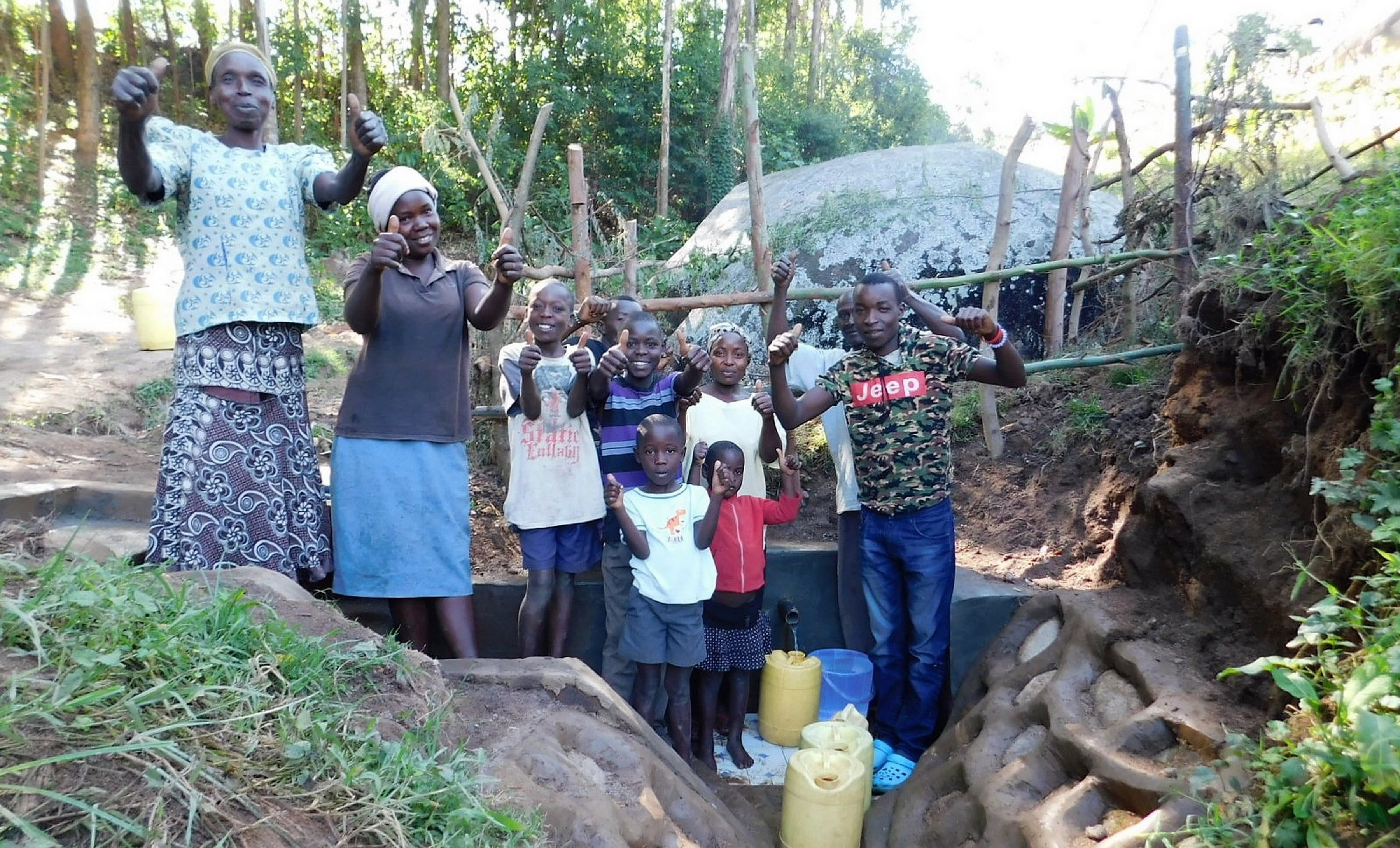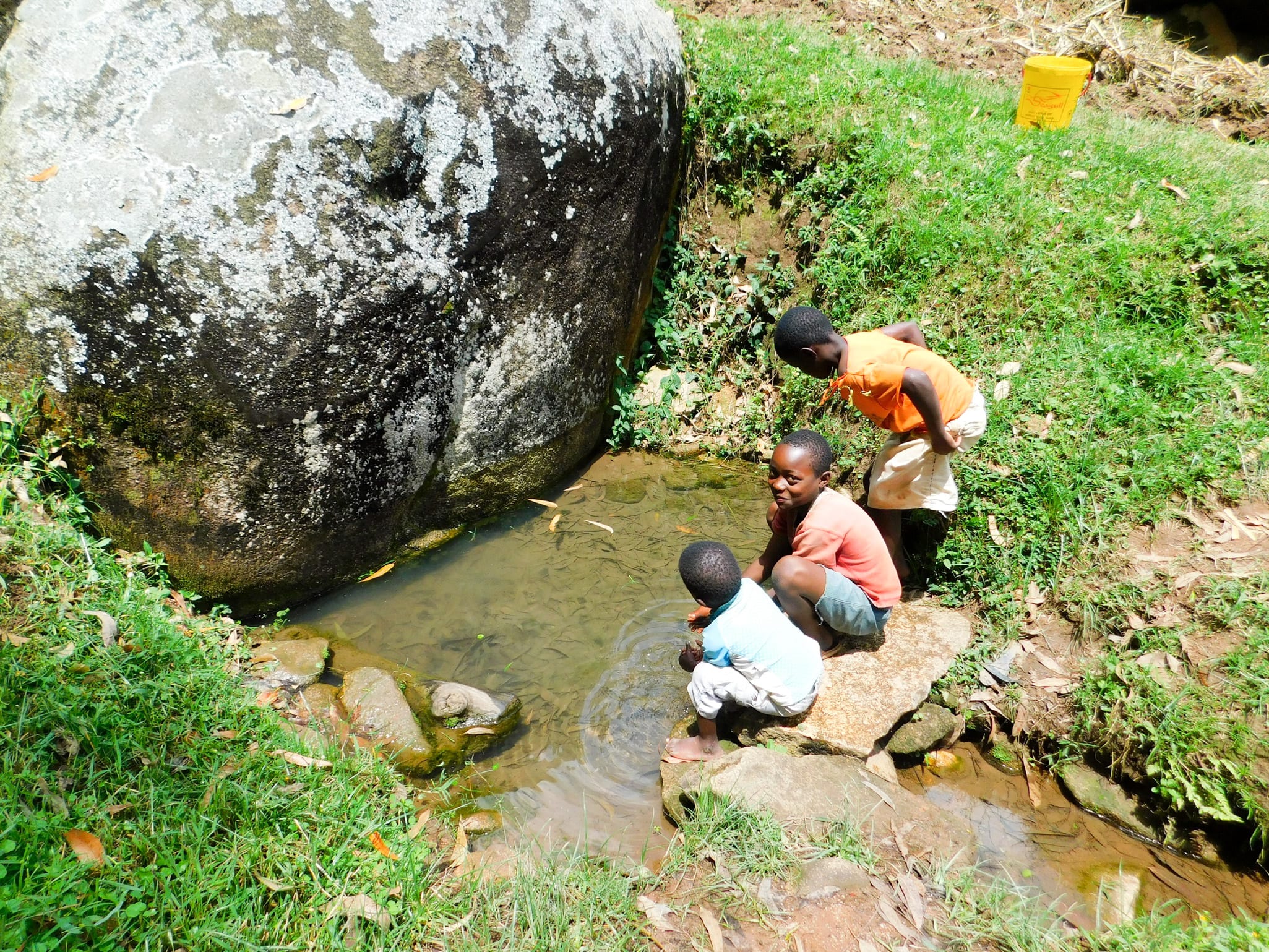Though the people in Ng'eny Barak have diverse talents, many locals think that farming is the only means, whether educated or illiterate, that can meet the needs of a family. The proceeds from the farms, especially cash crops like tea, helps the farmers get money for paying school fees for their children as well as buying other family items. People in this area wake up very early at 5am to work on their farms, which takes them through until 4pm in the evening when the day's target is achieved.
The 700 people in this area get their water from Ng’eny Barak Spring. The water is not safe for a person to drink given that the spring is located deep in a valley and is very open to all contaminants. Some people even bathe at the water source. Physically, there are rotten leaves and other solid materials that make the water very unsafe.
With these facts, urgent action must be taken to prevent the common waterborne diseases like cholera, typhoid and amoeba.
Being the only natural water source available in this community, accessing the spring can get difficult. It is hectic as community members crowd the source and make the water very dirty. The mud get stirs up from the bottom and it takes about two hours for the water to clear.
"Sometimes when I think of water from the spring, I feel like not drinking it because of fear of getting sick and losing my life at my young age," admitted 30-year-old Brenda.
"When we bought land in this place two years ago, people have not been able to concentrate on their farms and areas of engagement due to complaints of sickness attributed to use of water from the spring."
What we can do:
Training
Community members will attend hygiene and sanitation training for at least two days. This training will ensure participants have the knowledge they need about healthy practices and their importance. The facilitator plans to use PHAST (Participatory Hygiene and Sanitation Transformation), CLTS (Community-Led Total Sanitation), ABCD (Asset-Based Community Development), group discussions, handouts, and demonstrations at the spring. One of the most important topics we plan to cover is the handling, storage, and treatment of water. Having a clean water source will be extremely helpful, but it is useless if water gets contaminated by the time it’s consumed. Handwashing will also be a big topic, since handwashing is one of the most efficient ways to keep germs from spreading.
Training will also result in the formation of a committee that will oversee operations and maintenance at the spring. They will enforce proper behavior around the spring and delegate tasks that will help preserve the site, such as building a fence and digging proper drainage. The fence will keep out destructive animals, and the drainage will keep the area’s mosquito population at a minimum.
Sanitation Platforms
On the final day of training, participants will select five families that should benefit from concrete latrine floors. These are a huge upgrade from wooden slats; they are safe and easy to clean.
Training will also inform the community and selected families on what they need to contribute to make this project a success. They must mobilize locally available materials, such as bricks, clean sand, hardcore, and ballast. The five families chosen for sanitation platforms must prepare by sinking a pit for the sanitation platforms to be placed over. All community members must work together to make sure that accommodations and food are always provided for the work teams.
Spring Protection
Protecting the spring will ensure that the water is safe, adequate and secure. Construction will keep surface runoff and other contaminants out of the water. With the community’s high involvement in the process, there should be a good sense of responsibility and ownership for the new clean water source.
While the 700 people living here may have access on any given day, realistically a single water source can only support a population of 350-500 people. This community would be a good candidate for a second project in the future so adequate water is available. To learn more, click here.
Fetching water is predominantly a female role, done by both women and young girls. Protecting the spring and offering training and support will, therefore, help empower the female members of the community by giving them more time and efforts to engage and invest in income-generating activities.

 Protected Spring
Protected Spring
 Rehabilitation Project
Rehabilitation Project










